The Da Vinci surgical system, which has gained significant interest in the medical world in recent years, is among the leading health services of the Ekol International Hospital. This state-of-the-art system, led by expert doctors, delivers patients the highest level of health care.
This system offers an innovative approach to traditional surgical methods, enabling surgeons to perform their operations more precisely, effectively, and minimally invasively. Thanks to the coordinated movements of the robotic arms, surgeries result in less tissue damage and faster recovery times.
The Da Vinci surgical system strengthens Ekol International Hospital's leading position in healthcare by offering patients safer and more effective treatment options. This technological advance, combined with the knowledge and experience of specialist doctors, enables patients to experience fewer post-operative complications and faster post-surgical recovery. Thus, Ekol International Hospital continues to provide a reliable health experience to its patients with the superior services provided by the Da Vinci surgical system.
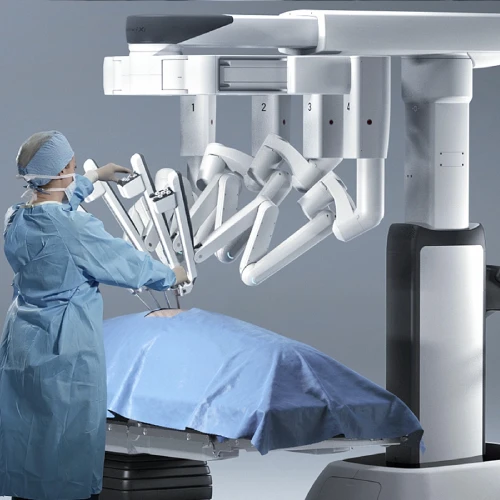
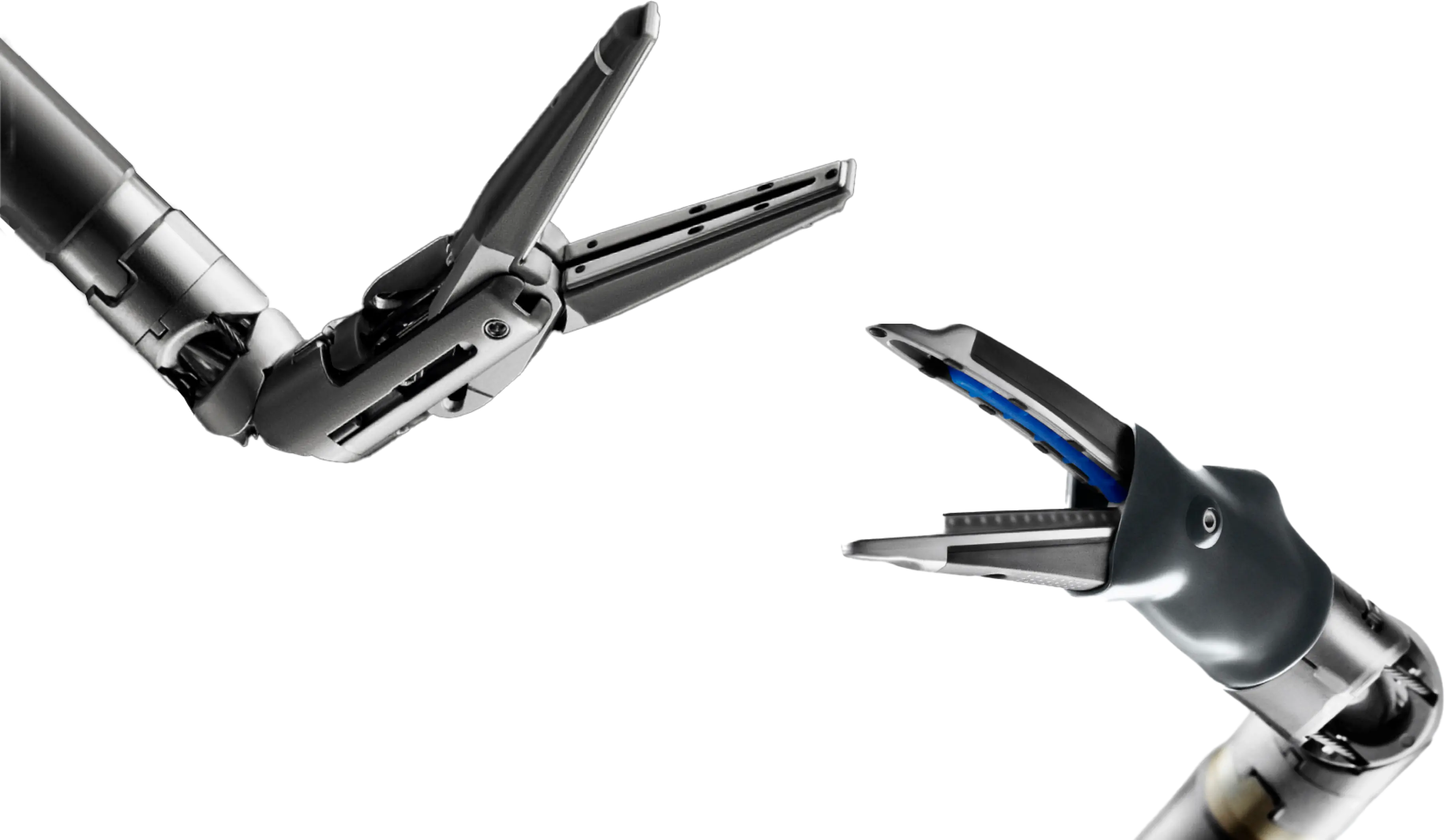
Structure of Robotic Arms
“The robotic arms of the Da Vinci Robotic Surgery System have a structure that mimics the movements of the human hand. The movements on the surgeon's control panel translate into precise and coordinated movements of the surgical instruments at the ends of the robotic arms.”
Precision of Surgical Operations
“The robotic surgery system provides the surgeon with great precision and control. Since the movements of the robotic arms are meticulously controlled, the surgeon can perform difficult and delicate surgeries more easily. This positively affects the results of surgery.”
High Definition Imaging
“The Da Vinci System offers the opportunity to observe the operation area with high-resolution 3D images. With 16 times larger imaging, it gives the chance to make a better surgical planning. What are the Advantages of Da Vinci Robotic Surgery?”
In the ever-evolving world of medical technology, precision, safety, and patient comfort are at the forefront. Ekol International Hospital stands at the cutting edge of this transformation with the Da Vinci Surgical System. A revolutionary approach reshaping the future of surgery. With the expertise of its specialist surgeons, Ekol International offers safer, minimally invasive procedures, ensuring faster recovery and improved patient outcomes.
Leading the Way: Urological Surgery, ENT Surgery, Gynecology Surgery and General Surgery with Da Vinci Robotic Surgical System
1. Urological Surgery
The Da Vinci Surgical System marks a significant advancement in urological surgeries, particularly in procedures that affect men’s health. Its minimally invasive technique allows surgeons to operate with unmatched precision, significantly reducing post-operative pain, discomfort, and complications such as erectile dysfunction.
The robotic system mimics the surgeon's hand movements with enhanced dexterity, enabling delicate and complex procedures to be performed with fewer incisions. Patients benefit from a quicker recovery process, shorter hospital stays, and improved quality of life.
2. General Surgery
In the field of general surgery, the Da Vinci Robotic Surgery System plays an important role, especially in obesity surgery. In procedures such as gastric bypass and sleeve gastrectomy, the precision provided by the robotic system offers a safer and more effective operation process. With smaller incisions, less blood loss and faster recovery, patients step into a process that improves both their physical health and quality of life.
3. Gynecology Surgery
In gynecological surgery, the Da Vinci System is used in many procedures such as fibroid surgery, hysterectomy and endometriosis, allowing surgeons to perform more controlled and precise movements. Operations performed through smaller incisions compared to traditional surgery reduce the risk of infection, allowing patients to recover faster and return to their daily lives sooner.
4. Ear Nose Throat (ENT) Surgery
The Da Vinci Robotic Surgery System provides a great advantage in the field of ENT, especially in head and neck surgery. The superior imaging and precise mobility provided by robotic surgery allows minimally invasive procedures to be performed in narrow and hard-to-reach anatomical regions. In this way, patients can be treated with less pain, shorter recovery time and less scarring.
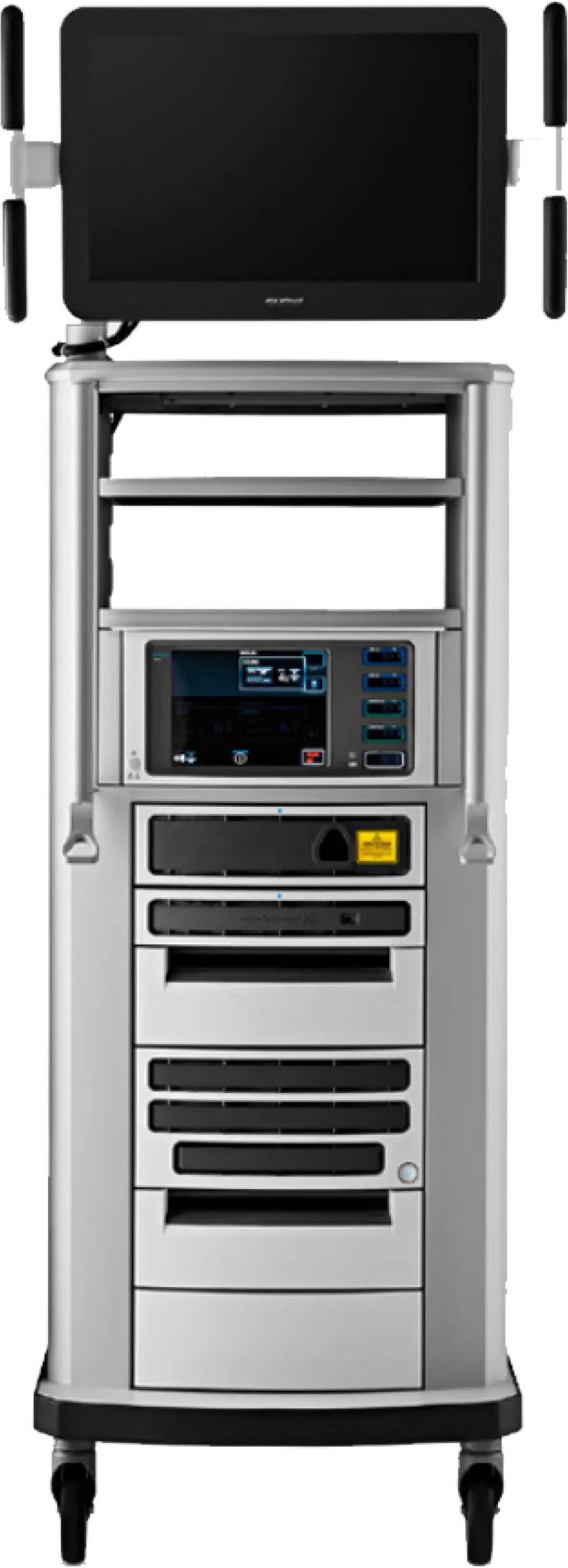
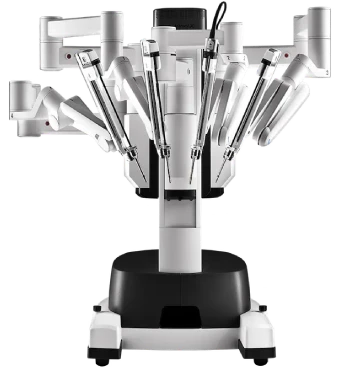
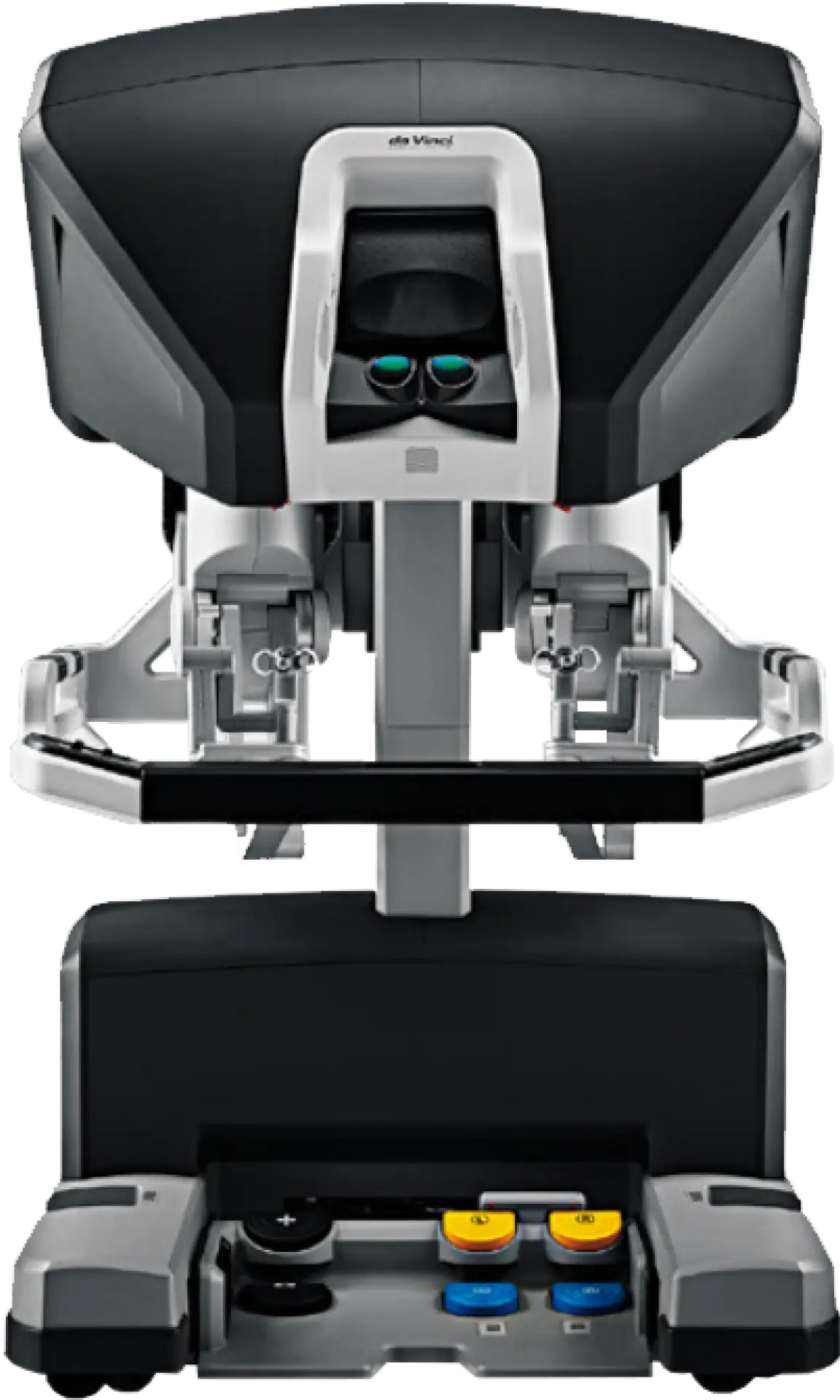
The Da Vinci system has been a game-changer in the surgical world for over 25 years, used in more than 12 million surgeries globally. It consists of three interconnected components, each playing a vital role in ensuring surgical precision and patient safety:
• Patient Cart
This is where the patient is connected to the robotic system. It features four robotic arms one fitted with an endoscope and others with specialized surgical instruments. The system allows highly accurate control over movements within the patient’s body, minimizing tissue damage.
• Surgeon Console
At the console, the surgeon remains in full control. Using hand controls, foot pedals, and a 3D high-definition viewer, the surgeon directs the robotic arms' movements. These arms replicate the surgeon’s exact hand movements but with enhanced stability and flexibility, making precise and complex maneuvers effortless.
• Vision Cart
The vision cart houses the system’s processors and high-definition imaging equipment. It ensures seamless communication between the console and patient cart, providing real-time, 16x magnified, 3D visuals of the surgical site for optimal surgical planning and execution.
Absolutely not!
The surgeon performs the entire operation. The Da Vinci system serves as an advanced, highly precise tool that enhances the surgeon's capabilities. Every movement is fully controlled by the surgeon, using sensitive, multifunctional instruments designed to operate through smaller incisions, resulting in a less invasive procedure.
The Da Vinci Surgical System offers numerous benefits:
Enhanced Precision & Control: Surgeons achieve unparalleled accuracy, particularly in delicate, complex procedures.
Minimally Invasive Approach: Smaller incisions mean less tissue trauma and faster recovery.
Reduced Pain & Discomfort: Patients experience significantly less post-operative pain.
Shorter Hospital Stay & Faster Recovery: Minimally invasive techniques allow patients to resume normal activities sooner.
High-Definition 3D Imaging: Clear, magnified visuals aid in better surgical planning.
Lower Risk of Complications: Greater precision minimizes intraoperative risks.
Better Cosmetic Results: Smaller incisions leave less noticeable scars.
Flexible Instrumentation: Robotic arms allow movements beyond the limits of human hands.
Broad Application: Used effectively across multiple surgical fields.
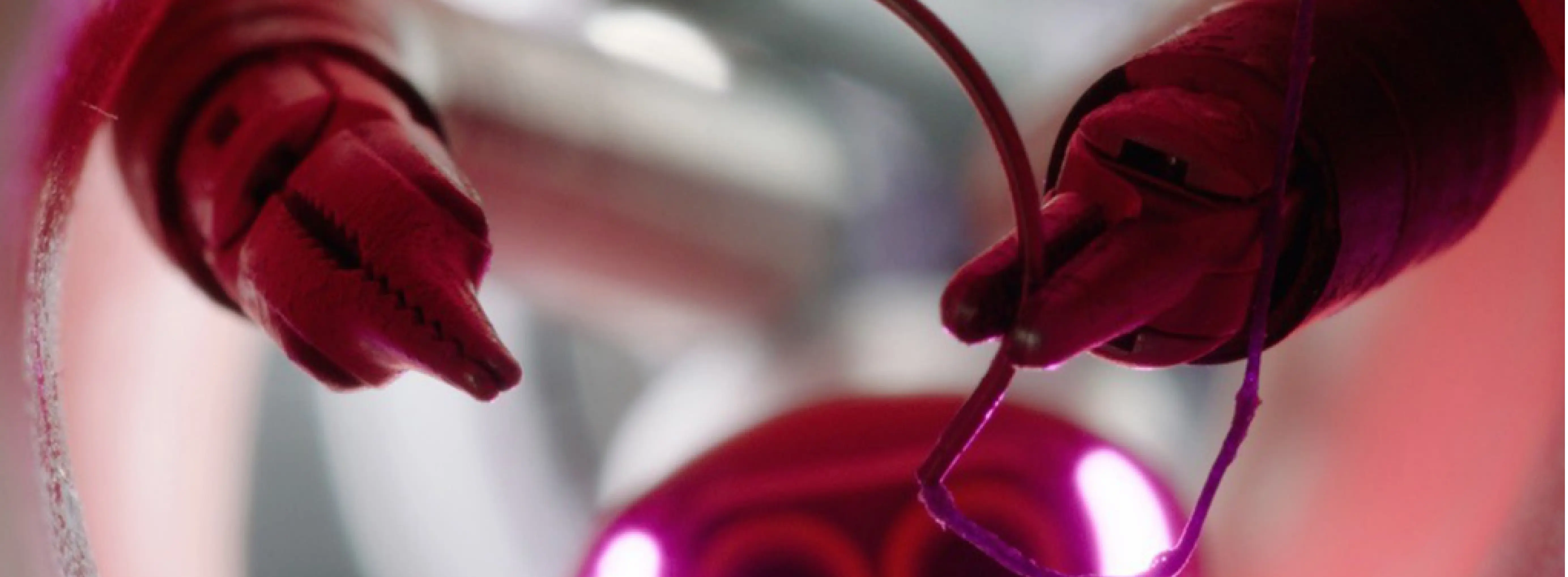
1. Prostate Cancer Treatment
In the field of urology, the Da Vinci System is used in radical prostatectomy for prostate cancer treatment, kidney tumor surgery (partial nephrectomy) and bladder cancer surgery. Thanks to the high precision provided by robotic surgery, nerve-sparing techniques can be applied more effectively and complications such as postoperative urinary incontinence and erectile dysfunction can be minimized. Thus, patients can return to their daily lives in a shorter time.
2. Obesity Surgery (Bariatric Surgery)
Da Vinci robotic surgery provides precise, controlled movements crucial for obesity-related procedures. The smaller incisions lead to faster healing, better cosmetic outcomes, and fewer complications.
3. Gastrointestinal Surgery
Surgeons can perform stomach, intestine, and digestive system surgeries with minimal tissue damage and maximum precision. This leads to faster recovery and less post-operative discomfort.
4. Gynecological Operations
The Da Vinci Robotic Surgery System provides a great advantage in gynecological operations, especially in procedures such as hysterectomy, myomectomy, endometriosis surgery and tubal ligation. These procedures, which are performed through smaller incisions compared to traditional open surgery, offer less blood loss, lower risk of infection and faster recovery, increasing patient comfort.
5. Neck Dissection
Particularly beneficial in ENT (Ear, Nose, and Throat) surgeries, the system allows surgeons to treat head and neck cancers without large incisions, improving cosmetic results and speeding up recovery.
6. Snoring and Sleep Apnea Treatment
For severe snoring conditions like obstructive sleep apnea, the Da Vinci system allows the surgeon to make fine adjustments to anatomical structures with minimal tissue trauma, ensuring faster healing and improved airway functionality.
Minimally invasive surgery represents one of modern medicine’s greatest advancements. Compared to traditional surgery, it uses smaller incisions, causes less tissue damage, and significantly shortens recovery times. The Da Vinci Surgical System epitomizes this approach, enabling surgeons to operate through incisions as small as 8 mm.
Benefits include:
Less pain and discomfort
Smaller, less visible scars
Shorter hospital stays
Quicker return to daily activitie
When performed by experienced surgeons, robot-assisted surgery is exceptionally safe. The system's precision minimizes the risk of surgical errors, post-operative complications, and infections. Each movement is carefully controlled by the surgeon, ensuring that the technology enhances not replaces human expertise.
However, it is essential to assess each patient individually. Factors such as the patient’s overall health, type of surgery, and the surgeon’s experience must all be considered when determining if robotic surgery is the best option.
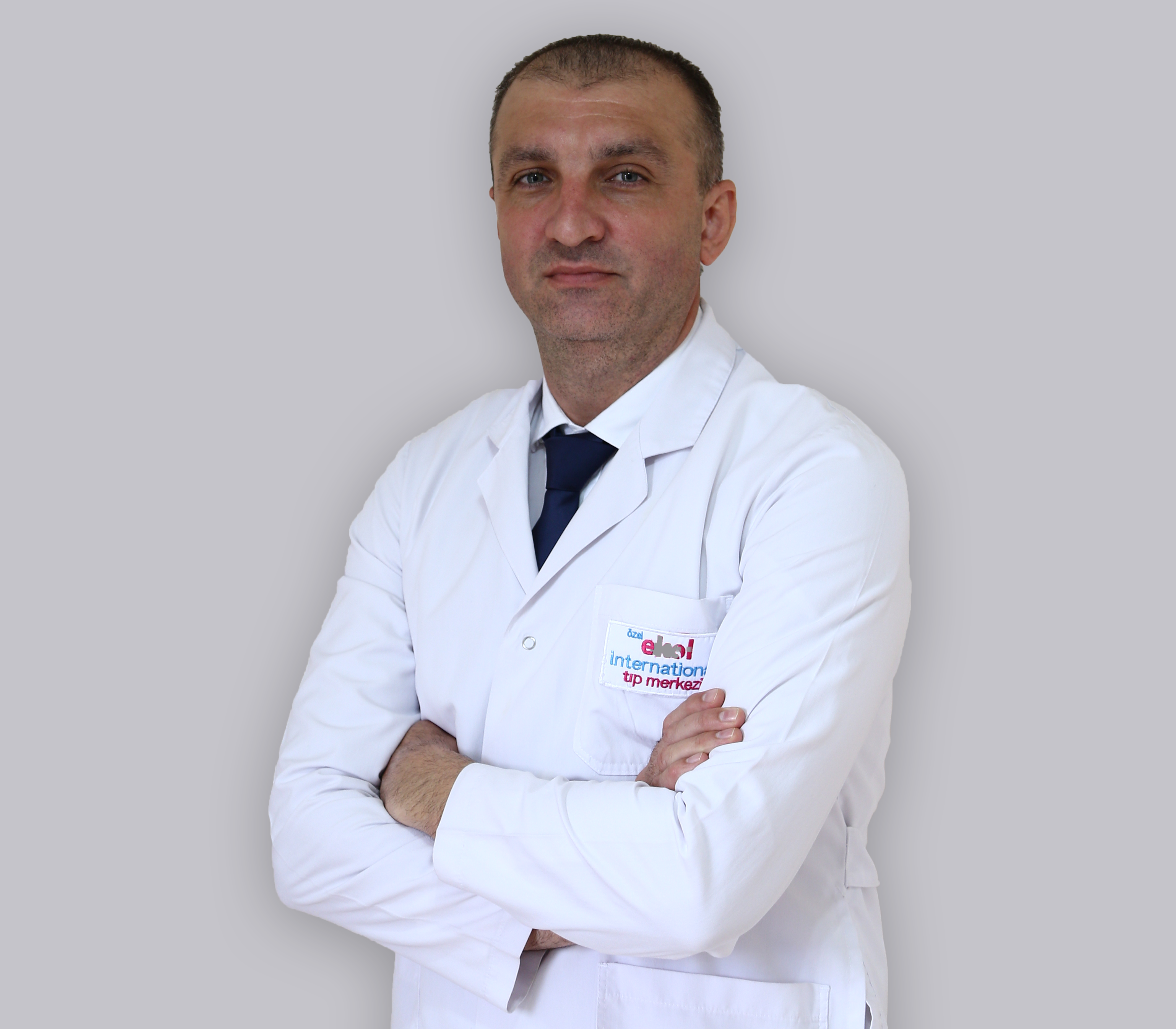 He completed his medical education in Ege University Faculty of Medicine in 1998. Between 2000-2005, he specialized in Urology at Ege University Department of Urology. In 2013, he received the title of Associate Professor at Ege University Faculty of Medicine. After his specialty education, he continued his vocational education by participating in many different educations, courses and congresses. He took courses and educations on endourology courses, PNL - RIRS (closed kidney stone surgeries), Pelvic Organ Prolapse, urinary incontinence.
He continues to serve as the Chairman of the Turkish Continence Association Izmir Branch and a Member of the Turkish Continence Association Board of Directors. He is a member of Urological Surgery Association, Turkish Urology Association, European Urology Association, Continence Association, International Continence Society (ICS) Association. More than 200 scientific articles have been published in domestic and foreign scientific journals. Assoc. Prof. Dr. Adnan Şimşir, who speaks English fluently, is married and has one child.
Areas of interest: Laparoscopic Kidney Cancer Kidney Cysts Kidney Duct Stenosis Operations Holmium Laser Closed (Percutaneous / Flexible-RIRS) Kidney Stone Surgery Laser Endoscopic Ureteral Stone Surgery Radical Cystectomy Ileal Bladder (Artificial Bladder) Surgery Closed Bladder Cancer Surgery (TUR-M) Laser Closed Bladder Cancer and Bladder Stone Surgery Laparoscopic Prostate Cancer Surgery Endoscopic Prostate Treatment (Prostate treatment with laser and plasma kinetic technology TUR-P, TURIS, BiVAP, HOLEP) Testicular Cancer Treatments Urinary Incontinence Treatments Varicocele and Infertility Treatments Undescended Testicle Vesicoureteral Reflux Treatments Hipospadias (Prophet's Sunnah) Circumcision One-piece, two-piece, three-piece transverse-longitudinal Penile Prosthesis Implantation in the erection problem (impotence) (happiness stick)
He completed his medical education in Ege University Faculty of Medicine in 1998. Between 2000-2005, he specialized in Urology at Ege University Department of Urology. In 2013, he received the title of Associate Professor at Ege University Faculty of Medicine. After his specialty education, he continued his vocational education by participating in many different educations, courses and congresses. He took courses and educations on endourology courses, PNL - RIRS (closed kidney stone surgeries), Pelvic Organ Prolapse, urinary incontinence.
He continues to serve as the Chairman of the Turkish Continence Association Izmir Branch and a Member of the Turkish Continence Association Board of Directors. He is a member of Urological Surgery Association, Turkish Urology Association, European Urology Association, Continence Association, International Continence Society (ICS) Association. More than 200 scientific articles have been published in domestic and foreign scientific journals. Assoc. Prof. Dr. Adnan Şimşir, who speaks English fluently, is married and has one child.
Areas of interest: Laparoscopic Kidney Cancer Kidney Cysts Kidney Duct Stenosis Operations Holmium Laser Closed (Percutaneous / Flexible-RIRS) Kidney Stone Surgery Laser Endoscopic Ureteral Stone Surgery Radical Cystectomy Ileal Bladder (Artificial Bladder) Surgery Closed Bladder Cancer Surgery (TUR-M) Laser Closed Bladder Cancer and Bladder Stone Surgery Laparoscopic Prostate Cancer Surgery Endoscopic Prostate Treatment (Prostate treatment with laser and plasma kinetic technology TUR-P, TURIS, BiVAP, HOLEP) Testicular Cancer Treatments Urinary Incontinence Treatments Varicocele and Infertility Treatments Undescended Testicle Vesicoureteral Reflux Treatments Hipospadias (Prophet's Sunnah) Circumcision One-piece, two-piece, three-piece transverse-longitudinal Penile Prosthesis Implantation in the erection problem (impotence) (happiness stick)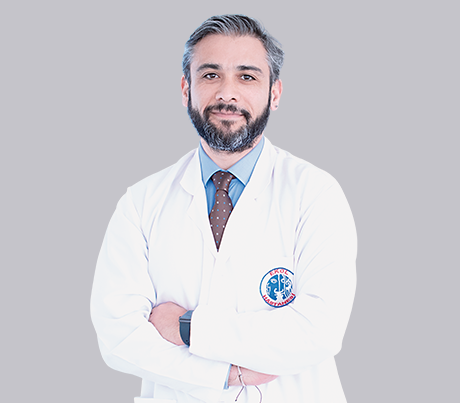 He completed his medical education at Istanbul University Cerrahpaşa Faculty of Medicine in 2004. Between 2004-2009, he specialized in Urology at Akdeniz University, Department of Urology. In 2017, he received the title of Associate Professor at Tepecik Training and Research Hospital. He received the title of Professor in 2023. He received Laparoscopic Surgery Training at the University of Leipzig in 2015 and Urooncology training at the University of North Carolina in 2017. He has a European Urology Specialization Diploma from FEBU (Fellow of European Board of Urology) since 2018. He continues his professional studies with Laparoscopic and Robotic Surgery techniques, especially in the Surgery of Urological Cancers. He is a member of the Urological Surgery Association, the Turkish Urology Association, the European Urology Association and the American Urology Association. More than 175 scientific articles have been published in domestic and foreign scientific journals.
Having one child, Prof. Dr. Orçun Çelik is fluent in English.
Areas of interest:
• Laparoscopic Kidney Cancer
• Laparoscopic Prostate Cancer
• Laparoscopic Kidney Sparing Surgery
• Renal Canal Stenosis Surgery
• Closed (Percutaneous/Flexible-RIRS) Kidney Stone Surgery with Holmium Laser
• Laser Endoscopic Ureteral Stone Surgery
• Urethral Stenosis Surgeries in Men and Women (Uretroplasty)
• Radical Cystectomy Ileal Bladder (Artificial Bladder) Surgery
• Closed Bladder Cancer Surgery (TUR-M)
• Laser Closed Bladder Cancer and Bladder Stone Surgery
• Laparoscopic Prostate Cancer Surgery
• Endoscopic Prostate Treatment (Prostate treatment with laser and plasma kinetic technology TUR-P, TURIS, BiVAP, HOLEP)
• Testicular Cancer Treatments
• Urinary Incontinence Treatments
• Varicocele and Infertility Treatments
• Undescended Testicle
• Vesicoureteral Reflux Treatments
• Hypospadias (Prophet Sunnah) Circumcision
• One-piece, two-piece, three-piece Penile Prosthesis Implantation (happiness bar) that grows transversely and longitudinally in erectile dysfunction (impotence)
He completed his medical education at Istanbul University Cerrahpaşa Faculty of Medicine in 2004. Between 2004-2009, he specialized in Urology at Akdeniz University, Department of Urology. In 2017, he received the title of Associate Professor at Tepecik Training and Research Hospital. He received the title of Professor in 2023. He received Laparoscopic Surgery Training at the University of Leipzig in 2015 and Urooncology training at the University of North Carolina in 2017. He has a European Urology Specialization Diploma from FEBU (Fellow of European Board of Urology) since 2018. He continues his professional studies with Laparoscopic and Robotic Surgery techniques, especially in the Surgery of Urological Cancers. He is a member of the Urological Surgery Association, the Turkish Urology Association, the European Urology Association and the American Urology Association. More than 175 scientific articles have been published in domestic and foreign scientific journals.
Having one child, Prof. Dr. Orçun Çelik is fluent in English.
Areas of interest:
• Laparoscopic Kidney Cancer
• Laparoscopic Prostate Cancer
• Laparoscopic Kidney Sparing Surgery
• Renal Canal Stenosis Surgery
• Closed (Percutaneous/Flexible-RIRS) Kidney Stone Surgery with Holmium Laser
• Laser Endoscopic Ureteral Stone Surgery
• Urethral Stenosis Surgeries in Men and Women (Uretroplasty)
• Radical Cystectomy Ileal Bladder (Artificial Bladder) Surgery
• Closed Bladder Cancer Surgery (TUR-M)
• Laser Closed Bladder Cancer and Bladder Stone Surgery
• Laparoscopic Prostate Cancer Surgery
• Endoscopic Prostate Treatment (Prostate treatment with laser and plasma kinetic technology TUR-P, TURIS, BiVAP, HOLEP)
• Testicular Cancer Treatments
• Urinary Incontinence Treatments
• Varicocele and Infertility Treatments
• Undescended Testicle
• Vesicoureteral Reflux Treatments
• Hypospadias (Prophet Sunnah) Circumcision
• One-piece, two-piece, three-piece Penile Prosthesis Implantation (happiness bar) that grows transversely and longitudinally in erectile dysfunction (impotence)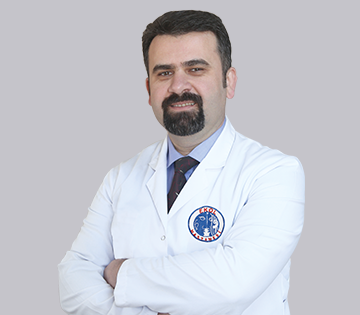 He was graduated from Karadeniz Technical Unjiversity Faculty of Medicine in 2003.
He completed his residency in 2009 in Ankara Dışkapı Yıldırım Beyazıt Research Hospital and and assumed the title of specialist in the field of urology. He joined the Laparoscopy Course in GATA. He completed the education for Percutan Renal Surgeries in Keçiören Research Hospital. His areas of research are Endourology, Urooncology, Andrology, Female Urology and Paediatric Urology.
He has 8 articles published in international journals, 7 articles in national journals, 5 poster presentations in international congresses and 2 poster presentations in national congresses.
He speaks very well English, married and has 2 children.
Interests:
Laparoscopic Kidney Cancer, Renal Cysts, Kidney Tract Stenosis / Obstruction Surgeries, Closed (Percutaneous / Flexible-RIRS) Renal Calculi Surgery with Holmium Laser Lithotripsy, Endoscopic Ureteral Calculi Surgery with Laser.
Closed Bladder Cancer Surgery (TUR-M), Ileal Bladder (Artificial Bladder) Surgery with Radical Cystectomy, Closed Bladder Cancer and Bladder Calculi Surgeries with Laser
Laparoscopic Prostate Cancer Surgery. Endoscopic Prostate Treatment (prostate treatment with laser and plasma kinetic technology, TUR-P, TURIS, BiVAP, HOLEP).
Testicular Cancer Treatments, Urinary Incontinence Treatments, Varicocele and Infertility Treatments, Undescended Testicle, Hipospadias (Sunnah of the Prophet), Circumcision.
One-piece, Two-piece, Three-piece Penile Prosthesis Implantation (joy stick / bliss stick) that can enlarge both transversally and longitudinally for hardening problems (impotency).
He was graduated from Karadeniz Technical Unjiversity Faculty of Medicine in 2003.
He completed his residency in 2009 in Ankara Dışkapı Yıldırım Beyazıt Research Hospital and and assumed the title of specialist in the field of urology. He joined the Laparoscopy Course in GATA. He completed the education for Percutan Renal Surgeries in Keçiören Research Hospital. His areas of research are Endourology, Urooncology, Andrology, Female Urology and Paediatric Urology.
He has 8 articles published in international journals, 7 articles in national journals, 5 poster presentations in international congresses and 2 poster presentations in national congresses.
He speaks very well English, married and has 2 children.
Interests:
Laparoscopic Kidney Cancer, Renal Cysts, Kidney Tract Stenosis / Obstruction Surgeries, Closed (Percutaneous / Flexible-RIRS) Renal Calculi Surgery with Holmium Laser Lithotripsy, Endoscopic Ureteral Calculi Surgery with Laser.
Closed Bladder Cancer Surgery (TUR-M), Ileal Bladder (Artificial Bladder) Surgery with Radical Cystectomy, Closed Bladder Cancer and Bladder Calculi Surgeries with Laser
Laparoscopic Prostate Cancer Surgery. Endoscopic Prostate Treatment (prostate treatment with laser and plasma kinetic technology, TUR-P, TURIS, BiVAP, HOLEP).
Testicular Cancer Treatments, Urinary Incontinence Treatments, Varicocele and Infertility Treatments, Undescended Testicle, Hipospadias (Sunnah of the Prophet), Circumcision.
One-piece, Two-piece, Three-piece Penile Prosthesis Implantation (joy stick / bliss stick) that can enlarge both transversally and longitudinally for hardening problems (impotency). 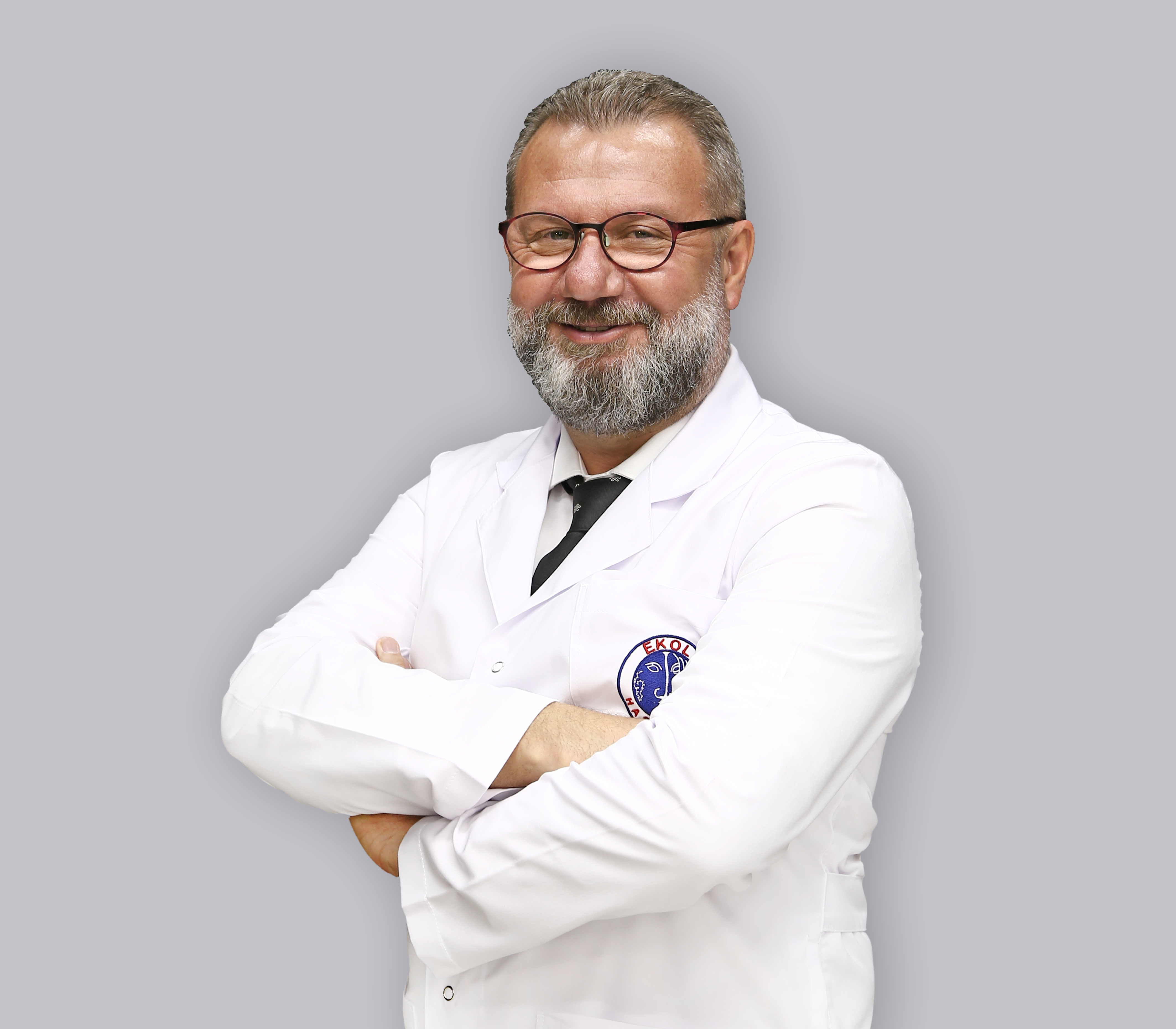 He completed his medical education in Hacettepe University Faculty of Medicine (English) in 1995. Between 1995-2000, he completed his specialization in Urology at Dokuz Eylül University Department of Urology.
After his specialization, he worked as a urology specialist at Bayındır State Hospital, Karşıyaka State Hospital, Kemalpaşa State Hospital.
After his specialty education, he continued his vocational education by participating in many different educations, courses and congresses. He received different educations such as endourology courses, PNL - RIRS (closed kidney stone surgeries) course, CİSED training (Association of Sexual Health Institute). He made frequent speeches in congresses, television programs and social media, especially in recent times. He is the member of Turkish Urology Association, Urological Surgery Association and European Urology Association.
Op. Dr. Tansu Turgut is fluent in English and his level of German is intermediate.
Areas of interest: Laparoscopic Kidney Cancer Kidney Cysts Kidney Duct Stenosis Operations Holmium Laser Closed (Percutaneous / Flexible-RIRS) Kidney Stone Surgery Laser Endoscopic Ureteral Stone Surgery Radical Cystectomy Ileal Bladder (Artificial Bladder) Surgery Closed Bladder Cancer Surgery (TUR-M) Laser Closed Bladder Cancer and Bladder Stone Surgery Laparoscopic Prostate Cancer Surgery Endoscopic Prostate Treatment (Prostate treatment with laser and plasma kinetic technology TUR-P, TURIS, BiVAP, HOLEP) Testicular Cancer Treatments Urinary Incontinence Treatments Varicocele and Infertility Treatments Undescended Testicle Vesicoureteral Reflux Treatments Hipospadias (Prophet's Sunnah) Circumcision One-piece, two-piece, three-piece transverse-longitudinal Penile Prosthesis Implantation in the erection problem (impotence) (happiness stick)
He completed his medical education in Hacettepe University Faculty of Medicine (English) in 1995. Between 1995-2000, he completed his specialization in Urology at Dokuz Eylül University Department of Urology.
After his specialization, he worked as a urology specialist at Bayındır State Hospital, Karşıyaka State Hospital, Kemalpaşa State Hospital.
After his specialty education, he continued his vocational education by participating in many different educations, courses and congresses. He received different educations such as endourology courses, PNL - RIRS (closed kidney stone surgeries) course, CİSED training (Association of Sexual Health Institute). He made frequent speeches in congresses, television programs and social media, especially in recent times. He is the member of Turkish Urology Association, Urological Surgery Association and European Urology Association.
Op. Dr. Tansu Turgut is fluent in English and his level of German is intermediate.
Areas of interest: Laparoscopic Kidney Cancer Kidney Cysts Kidney Duct Stenosis Operations Holmium Laser Closed (Percutaneous / Flexible-RIRS) Kidney Stone Surgery Laser Endoscopic Ureteral Stone Surgery Radical Cystectomy Ileal Bladder (Artificial Bladder) Surgery Closed Bladder Cancer Surgery (TUR-M) Laser Closed Bladder Cancer and Bladder Stone Surgery Laparoscopic Prostate Cancer Surgery Endoscopic Prostate Treatment (Prostate treatment with laser and plasma kinetic technology TUR-P, TURIS, BiVAP, HOLEP) Testicular Cancer Treatments Urinary Incontinence Treatments Varicocele and Infertility Treatments Undescended Testicle Vesicoureteral Reflux Treatments Hipospadias (Prophet's Sunnah) Circumcision One-piece, two-piece, three-piece transverse-longitudinal Penile Prosthesis Implantation in the erection problem (impotence) (happiness stick)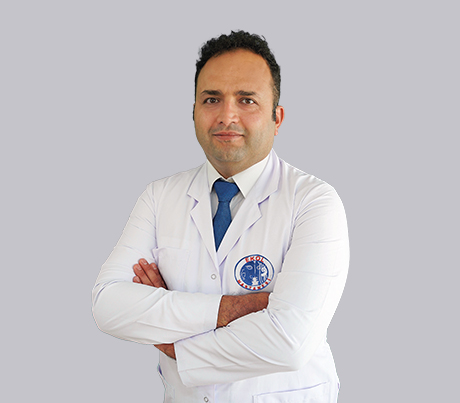 After graduating from Konya Ereğli Anatolian High School in 1999, he completed his Medical education at Gazi University Faculty of Medicine in 2005. in 2012, he completed his specialty training at Ankara Dışkapı Yıldırım Beyazıt Training and Research Hospital and became a urology specialist. between 2012 and 2018, he worked as a urology specialist at Rize State Hospital and was named ‘Doctor of the Year’ in 2016. In 2018, he received the title of Doctor of Urology at Hitit University Faculty of Medicine and worked as a lecturer here until 2 Dec 2022.
Association Memberships:
European Society of Urology (EAU)
ESSM (European Society for Sexual Medicine)
Urological Surgery Association
Society of Andrology
Continence Association
Her research interests include Endourology, Urooncology, Andrology, Female Urology and Pediatric Urology.
Many articles and book chapters have been published in international and national peer-reviewed journals related to Urooncology, Andrology and Kidney stones, urinary infections. There are many full text published oral and poster presentations at national and international congresses and meetings. He speaks English well. He is married and has one son and one daughter.
Areas of interest: Laparoscopic urological operations Prostate enlargement surgeries (Laser and plasma kinetic technology) HOLEP Enucleation, stroll Open operations Treatment of kidney and ureteral stones Closed Holmium Laser (Percutaneous/Flexible-RIRS) Kidney Stone Surgery Endoscopic Ureteral Stone Surgery with Laser Endoscopic treatment of bladder stones Sexual dysfunction disorders such as erectile dysfunction and premature ejaculation Shock Wave Therapy for erectile Dysfunction(ESWT) One-piece, two-piece, three-piece transversely enlargable Penile Prosthesis Implantation for erection problem (happiness bar) PRP treatment for hardening problem Penile fullness injection in the Treatment of Premature Ejaculation Penis enlargement operations Treatment of penile curvature and Peyronie's disease Kidney cancer treatment Laparoscopic and open kidney surgery Treatment of bladder cancer Radical Cystectomy Ileal Bladder (Artificial Bladder) Surgery Closed Bladder Cancer Surgery (TUR-M) Prostate cancer treatment Treatment of testicular cancer Infertility(Infertility)Treatments Microscopic Varicocelectomy TESE(testicular biopsy) Treatment of urinary incontinence Bladder and urinary canal suspension treatments Urinary canal injection treatments Pediatric Urology Religious circumcision Undescended Testicle Vesicoureteral Reflux Treatments Treatment of renal outlet stenosis(UP dalik) Hypospadias (Circumcision of the Prophet) Circumcision
After graduating from Konya Ereğli Anatolian High School in 1999, he completed his Medical education at Gazi University Faculty of Medicine in 2005. in 2012, he completed his specialty training at Ankara Dışkapı Yıldırım Beyazıt Training and Research Hospital and became a urology specialist. between 2012 and 2018, he worked as a urology specialist at Rize State Hospital and was named ‘Doctor of the Year’ in 2016. In 2018, he received the title of Doctor of Urology at Hitit University Faculty of Medicine and worked as a lecturer here until 2 Dec 2022.
Association Memberships:
European Society of Urology (EAU)
ESSM (European Society for Sexual Medicine)
Urological Surgery Association
Society of Andrology
Continence Association
Her research interests include Endourology, Urooncology, Andrology, Female Urology and Pediatric Urology.
Many articles and book chapters have been published in international and national peer-reviewed journals related to Urooncology, Andrology and Kidney stones, urinary infections. There are many full text published oral and poster presentations at national and international congresses and meetings. He speaks English well. He is married and has one son and one daughter.
Areas of interest: Laparoscopic urological operations Prostate enlargement surgeries (Laser and plasma kinetic technology) HOLEP Enucleation, stroll Open operations Treatment of kidney and ureteral stones Closed Holmium Laser (Percutaneous/Flexible-RIRS) Kidney Stone Surgery Endoscopic Ureteral Stone Surgery with Laser Endoscopic treatment of bladder stones Sexual dysfunction disorders such as erectile dysfunction and premature ejaculation Shock Wave Therapy for erectile Dysfunction(ESWT) One-piece, two-piece, three-piece transversely enlargable Penile Prosthesis Implantation for erection problem (happiness bar) PRP treatment for hardening problem Penile fullness injection in the Treatment of Premature Ejaculation Penis enlargement operations Treatment of penile curvature and Peyronie's disease Kidney cancer treatment Laparoscopic and open kidney surgery Treatment of bladder cancer Radical Cystectomy Ileal Bladder (Artificial Bladder) Surgery Closed Bladder Cancer Surgery (TUR-M) Prostate cancer treatment Treatment of testicular cancer Infertility(Infertility)Treatments Microscopic Varicocelectomy TESE(testicular biopsy) Treatment of urinary incontinence Bladder and urinary canal suspension treatments Urinary canal injection treatments Pediatric Urology Religious circumcision Undescended Testicle Vesicoureteral Reflux Treatments Treatment of renal outlet stenosis(UP dalik) Hypospadias (Circumcision of the Prophet) Circumcision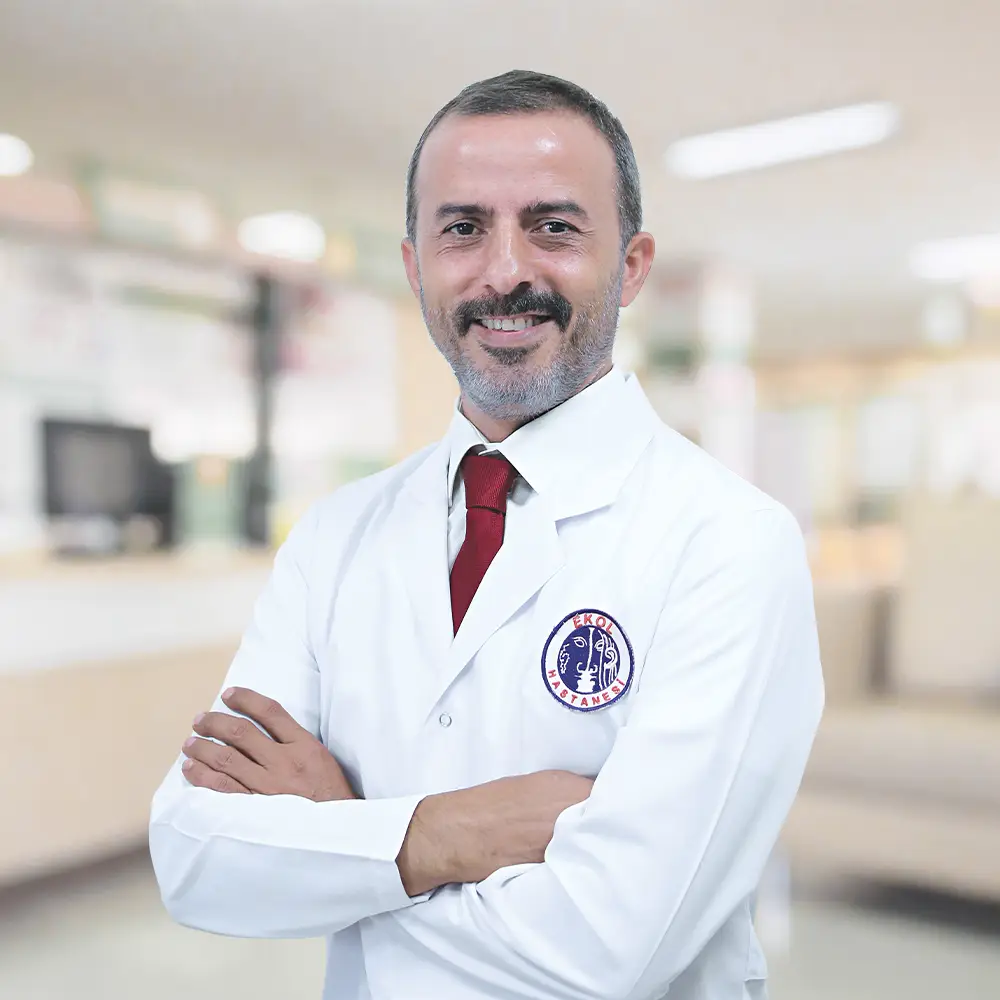 He completed his medical education at Dokuz Eylul University Faculty of Medicine between 1995 and 2001. He specialized in General Surgery at Ankara Training and Research Hospital between 2001 and 2006. He worked as a General Surgery Specialist at Ankara Training and Research Hospital between 2006 and 2008 and later at Ordu State Hospital between 2008 and 2013. In 2016, he received the title of Associate Professor in the Department of General Surgery, Faculty of Medicine, Izmir University. In 2015, he received the Turkish Surgical Association Proficiency Exam (Board) Certificate of Achievement. He is a member of Turkish Surgical Association, Turkish Colon and Rectum Surgery Association, National Endoscopic Laparoscopic Surgery Association, Bariatric and Metabolic Surgery Association, and Hepatobiliary Surgery Association. Between 2014 and 2016, he taught many undergraduate and graduate courses at Izmir University Faculty of Medicine. He has conducted many national and international studies and these studies have received many citations. Assoc. Prof. Dr. Ömer Yoldaş speaks English fluently. He has two children.
Knowledge Domain: Obesity Surgery and Metabolic Surgery, Laparoscopic Reflux Surgery, Laparoscopic Gallbladder Surgeries, Gastric Balloon Application, Gastric filler Application, Laparoscopic Gastric and Intestinal Cancer Surgeries, Haemorrhoid Surgeries, Perianal Fistula Surgeries, Laparoscopic Abdominal and Groin Hernia Surgeries, Breast Cancer Surgeries, Thyroid Cancer and Goitre Surgeries.
He completed his medical education at Dokuz Eylul University Faculty of Medicine between 1995 and 2001. He specialized in General Surgery at Ankara Training and Research Hospital between 2001 and 2006. He worked as a General Surgery Specialist at Ankara Training and Research Hospital between 2006 and 2008 and later at Ordu State Hospital between 2008 and 2013. In 2016, he received the title of Associate Professor in the Department of General Surgery, Faculty of Medicine, Izmir University. In 2015, he received the Turkish Surgical Association Proficiency Exam (Board) Certificate of Achievement. He is a member of Turkish Surgical Association, Turkish Colon and Rectum Surgery Association, National Endoscopic Laparoscopic Surgery Association, Bariatric and Metabolic Surgery Association, and Hepatobiliary Surgery Association. Between 2014 and 2016, he taught many undergraduate and graduate courses at Izmir University Faculty of Medicine. He has conducted many national and international studies and these studies have received many citations. Assoc. Prof. Dr. Ömer Yoldaş speaks English fluently. He has two children.
Knowledge Domain: Obesity Surgery and Metabolic Surgery, Laparoscopic Reflux Surgery, Laparoscopic Gallbladder Surgeries, Gastric Balloon Application, Gastric filler Application, Laparoscopic Gastric and Intestinal Cancer Surgeries, Haemorrhoid Surgeries, Perianal Fistula Surgeries, Laparoscopic Abdominal and Groin Hernia Surgeries, Breast Cancer Surgeries, Thyroid Cancer and Goitre Surgeries.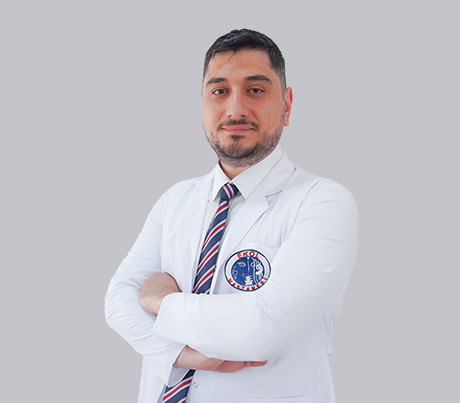 Date of birth
10.11.1987
Education and Expertise
Karadeniz Technical University Faculty of Medicine
Kocatepe University
Ankara University Faculty of Medicine
Konya Health Sciences University
Professional Interests:
Obesity (fatness) surgery and metabolic surgery
Laparoscopic reflux surgery
Laparoscopic gallbladder surgeries
Gastric balloon application
ERCP, EMR, ESD (Advanced Endoscopic procedures)
Laparoscopic pancreatic cancer surgery
Laparoscopic gastric and intestinal cancer surgeries
Hemorrhoid surgeries
Perianal fistula surgeries
Laparoscopic abdominal and inguinal hernia surgeries
Oncoplastic Breast cancer surgeries
Natural cancer surgery (NOSE)
Thyroid cancer and goiter surgeries.
Memberships to Scientific Organizations
Turkish Surgery Association
Turkish Obesity Surgery Association
Surgical Oncology Association
National Society of Endoscopic Laparoscopic Surgery
He is a member of the Bariatric and Metabolic Surgery Association.
Courses and Certificates:
Turkish surgical association proficiency exam (Board) certificate of achievement in 2018
He has more than 100 papers presented in national and international congresses and more than 50 articles published in international journals.
Foreign language
English
Date of birth
10.11.1987
Education and Expertise
Karadeniz Technical University Faculty of Medicine
Kocatepe University
Ankara University Faculty of Medicine
Konya Health Sciences University
Professional Interests:
Obesity (fatness) surgery and metabolic surgery
Laparoscopic reflux surgery
Laparoscopic gallbladder surgeries
Gastric balloon application
ERCP, EMR, ESD (Advanced Endoscopic procedures)
Laparoscopic pancreatic cancer surgery
Laparoscopic gastric and intestinal cancer surgeries
Hemorrhoid surgeries
Perianal fistula surgeries
Laparoscopic abdominal and inguinal hernia surgeries
Oncoplastic Breast cancer surgeries
Natural cancer surgery (NOSE)
Thyroid cancer and goiter surgeries.
Memberships to Scientific Organizations
Turkish Surgery Association
Turkish Obesity Surgery Association
Surgical Oncology Association
National Society of Endoscopic Laparoscopic Surgery
He is a member of the Bariatric and Metabolic Surgery Association.
Courses and Certificates:
Turkish surgical association proficiency exam (Board) certificate of achievement in 2018
He has more than 100 papers presented in national and international congresses and more than 50 articles published in international journals.
Foreign language
English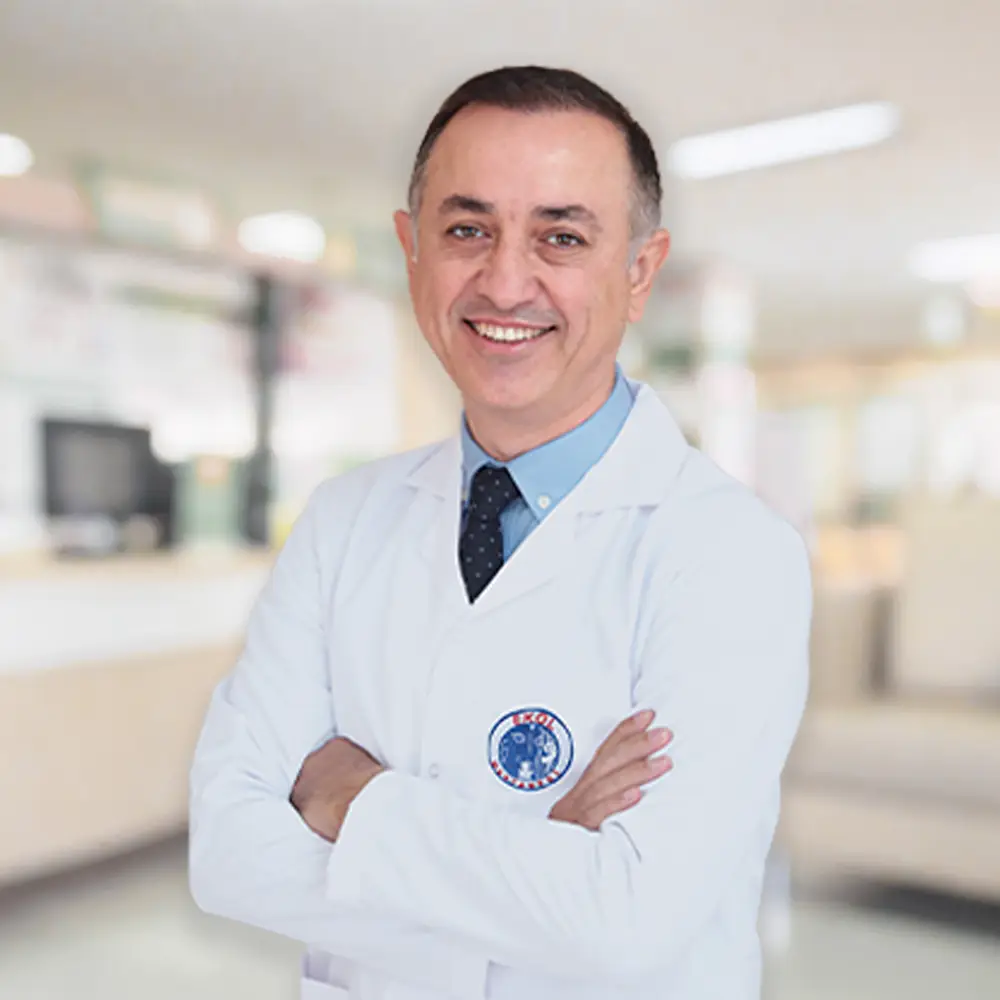 He completed his medical education at Osmangazi University Faculty of Medicine between 1990 and 1996, and his residency in General Surgery at Izmir Training and Research Hospital between 2004 and 2008. In 2008, he received the Turkish Surgical Association's Qualification Exam (Board) certificate of success. He is a member of Turkish Surgical Association, Turkish Colon and Rectum Surgery Association, National Endoscopic Laparoscopic Surgery Association, Bariatric and Metabolic Surgery Association. He worked as a lecturer at Istanbul Rumeli University between 2017 and 2020. He currently performs Laparoscopic Oncosurgery and Obesity Surgeries. He has many national and international studies and these studies have received many citations. Having a good command of English, Opr. Dr. Özgür Kavak is married and has two children.
Areas of interest: Laparoscopic Sleeve Gastrectomy, Laparoscopic Full Gastric Bypass, Laparoscopic Mini Bypass, Laparoscopic Type 2 Diabetes Surgery, Gastric Balloon Application with Endoscopic Method. In Non-Surgical Obesity Treatments: Stomach filler (Endoscopic), Laparoscopic Oncology Surgery (Colorectal, Stomach, Pancreas, Adrenal), Reflux - Gastric Hernia Surgery (Laparoscopic), Minimally Invasive Surgery, Laparoscopic Hernia Surgery, Endocrine Surgery (Thyroid - Breast Surgery), Haemorrhoid Surgery with Laser, Haemorrhoidopexy (LHP), Perianal Fistula Surgery with FILAC (Fistula Laser Closure) Method.
He completed his medical education at Osmangazi University Faculty of Medicine between 1990 and 1996, and his residency in General Surgery at Izmir Training and Research Hospital between 2004 and 2008. In 2008, he received the Turkish Surgical Association's Qualification Exam (Board) certificate of success. He is a member of Turkish Surgical Association, Turkish Colon and Rectum Surgery Association, National Endoscopic Laparoscopic Surgery Association, Bariatric and Metabolic Surgery Association. He worked as a lecturer at Istanbul Rumeli University between 2017 and 2020. He currently performs Laparoscopic Oncosurgery and Obesity Surgeries. He has many national and international studies and these studies have received many citations. Having a good command of English, Opr. Dr. Özgür Kavak is married and has two children.
Areas of interest: Laparoscopic Sleeve Gastrectomy, Laparoscopic Full Gastric Bypass, Laparoscopic Mini Bypass, Laparoscopic Type 2 Diabetes Surgery, Gastric Balloon Application with Endoscopic Method. In Non-Surgical Obesity Treatments: Stomach filler (Endoscopic), Laparoscopic Oncology Surgery (Colorectal, Stomach, Pancreas, Adrenal), Reflux - Gastric Hernia Surgery (Laparoscopic), Minimally Invasive Surgery, Laparoscopic Hernia Surgery, Endocrine Surgery (Thyroid - Breast Surgery), Haemorrhoid Surgery with Laser, Haemorrhoidopexy (LHP), Perianal Fistula Surgery with FILAC (Fistula Laser Closure) Method.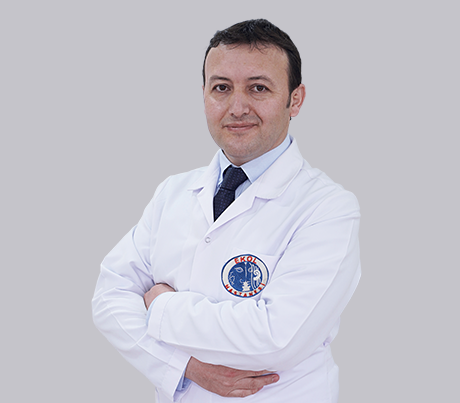 He completed his medical education at Dokuz Eylul University Faculty of Medicine between 1995-2001. He completed his general surgery residency at Eskişehir Osmangazi University Faculty of Medicine between 2002-2007. He is a member of Turkish Surgery Association, Turkish Colon and Rectum Surgery Association, National Endoscopic Laparoscopic Surgery Association, Bariatric and Metabolic Surgery Association, Hepatobiliary Surgery Association and Endocrine Surgery Association. He has many national and international studies and these studies have been cited many times.
Fluent in English, Opr. Dr. Rıza Özdemir is married and has one child.
Areas of interest:
• Obesity (fatness) surgery and metabolic surgery
• Laparoscopic reflux surgery
• Laparoscopic gallbladder surgeries
• Gastric balloon application
• Stomach injection application
• Laparoscopic gastric and intestinal cancer surgeries
• Haemorrhoid surgeries
• Perianal fistula surgeries
• Laparoscopic abdominal and inguinal hernia surgeries
• Breast cancer surgeries
He completed his medical education at Dokuz Eylul University Faculty of Medicine between 1995-2001. He completed his general surgery residency at Eskişehir Osmangazi University Faculty of Medicine between 2002-2007. He is a member of Turkish Surgery Association, Turkish Colon and Rectum Surgery Association, National Endoscopic Laparoscopic Surgery Association, Bariatric and Metabolic Surgery Association, Hepatobiliary Surgery Association and Endocrine Surgery Association. He has many national and international studies and these studies have been cited many times.
Fluent in English, Opr. Dr. Rıza Özdemir is married and has one child.
Areas of interest:
• Obesity (fatness) surgery and metabolic surgery
• Laparoscopic reflux surgery
• Laparoscopic gallbladder surgeries
• Gastric balloon application
• Stomach injection application
• Laparoscopic gastric and intestinal cancer surgeries
• Haemorrhoid surgeries
• Perianal fistula surgeries
• Laparoscopic abdominal and inguinal hernia surgeries
• Breast cancer surgeries He completed his medical education at Dokuz Eylul University Faculty of Medicine between 1995 and 2001. He specialized in General Surgery at Ankara Training and Research Hospital between 2001 and 2006. He worked as a General Surgery Specialist at Ankara Training and Research Hospital between 2006 and 2008 and later at Ordu State Hospital between 2008 and 2013. In 2016, he received the title of Associate Professor in the Department of General Surgery, Faculty of Medicine, Izmir University. In 2015, he received the Turkish Surgical Association Proficiency Exam (Board) Certificate of Achievement. He is a member of Turkish Surgical Association, Turkish Colon and Rectum Surgery Association, National Endoscopic Laparoscopic Surgery Association, Bariatric and Metabolic Surgery Association, and Hepatobiliary Surgery Association. Between 2014 and 2016, he taught many undergraduate and graduate courses at Izmir University Faculty of Medicine. He has conducted many national and international studies and these studies have received many citations. Assoc. Prof. Dr. Ömer Yoldaş speaks English fluently. He has two children.
Knowledge Domain: Obesity Surgery and Metabolic Surgery, Laparoscopic Reflux Surgery, Laparoscopic Gallbladder Surgeries, Gastric Balloon Application, Gastric filler Application, Laparoscopic Gastric and Intestinal Cancer Surgeries, Haemorrhoid Surgeries, Perianal Fistula Surgeries, Laparoscopic Abdominal and Groin Hernia Surgeries, Breast Cancer Surgeries, Thyroid Cancer and Goitre Surgeries.
He completed his medical education at Dokuz Eylul University Faculty of Medicine between 1995 and 2001. He specialized in General Surgery at Ankara Training and Research Hospital between 2001 and 2006. He worked as a General Surgery Specialist at Ankara Training and Research Hospital between 2006 and 2008 and later at Ordu State Hospital between 2008 and 2013. In 2016, he received the title of Associate Professor in the Department of General Surgery, Faculty of Medicine, Izmir University. In 2015, he received the Turkish Surgical Association Proficiency Exam (Board) Certificate of Achievement. He is a member of Turkish Surgical Association, Turkish Colon and Rectum Surgery Association, National Endoscopic Laparoscopic Surgery Association, Bariatric and Metabolic Surgery Association, and Hepatobiliary Surgery Association. Between 2014 and 2016, he taught many undergraduate and graduate courses at Izmir University Faculty of Medicine. He has conducted many national and international studies and these studies have received many citations. Assoc. Prof. Dr. Ömer Yoldaş speaks English fluently. He has two children.
Knowledge Domain: Obesity Surgery and Metabolic Surgery, Laparoscopic Reflux Surgery, Laparoscopic Gallbladder Surgeries, Gastric Balloon Application, Gastric filler Application, Laparoscopic Gastric and Intestinal Cancer Surgeries, Haemorrhoid Surgeries, Perianal Fistula Surgeries, Laparoscopic Abdominal and Groin Hernia Surgeries, Breast Cancer Surgeries, Thyroid Cancer and Goitre Surgeries. Date of birth
10.11.1987
Education and Expertise
Karadeniz Technical University Faculty of Medicine
Kocatepe University
Ankara University Faculty of Medicine
Konya Health Sciences University
Professional Interests:
Obesity (fatness) surgery and metabolic surgery
Laparoscopic reflux surgery
Laparoscopic gallbladder surgeries
Gastric balloon application
ERCP, EMR, ESD (Advanced Endoscopic procedures)
Laparoscopic pancreatic cancer surgery
Laparoscopic gastric and intestinal cancer surgeries
Hemorrhoid surgeries
Perianal fistula surgeries
Laparoscopic abdominal and inguinal hernia surgeries
Oncoplastic Breast cancer surgeries
Natural cancer surgery (NOSE)
Thyroid cancer and goiter surgeries.
Memberships to Scientific Organizations
Turkish Surgery Association
Turkish Obesity Surgery Association
Surgical Oncology Association
National Society of Endoscopic Laparoscopic Surgery
He is a member of the Bariatric and Metabolic Surgery Association.
Courses and Certificates:
Turkish surgical association proficiency exam (Board) certificate of achievement in 2018
He has more than 100 papers presented in national and international congresses and more than 50 articles published in international journals.
Foreign language
English
Date of birth
10.11.1987
Education and Expertise
Karadeniz Technical University Faculty of Medicine
Kocatepe University
Ankara University Faculty of Medicine
Konya Health Sciences University
Professional Interests:
Obesity (fatness) surgery and metabolic surgery
Laparoscopic reflux surgery
Laparoscopic gallbladder surgeries
Gastric balloon application
ERCP, EMR, ESD (Advanced Endoscopic procedures)
Laparoscopic pancreatic cancer surgery
Laparoscopic gastric and intestinal cancer surgeries
Hemorrhoid surgeries
Perianal fistula surgeries
Laparoscopic abdominal and inguinal hernia surgeries
Oncoplastic Breast cancer surgeries
Natural cancer surgery (NOSE)
Thyroid cancer and goiter surgeries.
Memberships to Scientific Organizations
Turkish Surgery Association
Turkish Obesity Surgery Association
Surgical Oncology Association
National Society of Endoscopic Laparoscopic Surgery
He is a member of the Bariatric and Metabolic Surgery Association.
Courses and Certificates:
Turkish surgical association proficiency exam (Board) certificate of achievement in 2018
He has more than 100 papers presented in national and international congresses and more than 50 articles published in international journals.
Foreign language
English He completed his medical education at Osmangazi University Faculty of Medicine between 1990 and 1996, and his residency in General Surgery at Izmir Training and Research Hospital between 2004 and 2008. In 2008, he received the Turkish Surgical Association's Qualification Exam (Board) certificate of success. He is a member of Turkish Surgical Association, Turkish Colon and Rectum Surgery Association, National Endoscopic Laparoscopic Surgery Association, Bariatric and Metabolic Surgery Association. He worked as a lecturer at Istanbul Rumeli University between 2017 and 2020. He currently performs Laparoscopic Oncosurgery and Obesity Surgeries. He has many national and international studies and these studies have received many citations. Having a good command of English, Opr. Dr. Özgür Kavak is married and has two children.
Areas of interest: Laparoscopic Sleeve Gastrectomy, Laparoscopic Full Gastric Bypass, Laparoscopic Mini Bypass, Laparoscopic Type 2 Diabetes Surgery, Gastric Balloon Application with Endoscopic Method. In Non-Surgical Obesity Treatments: Stomach filler (Endoscopic), Laparoscopic Oncology Surgery (Colorectal, Stomach, Pancreas, Adrenal), Reflux - Gastric Hernia Surgery (Laparoscopic), Minimally Invasive Surgery, Laparoscopic Hernia Surgery, Endocrine Surgery (Thyroid - Breast Surgery), Haemorrhoid Surgery with Laser, Haemorrhoidopexy (LHP), Perianal Fistula Surgery with FILAC (Fistula Laser Closure) Method.
He completed his medical education at Osmangazi University Faculty of Medicine between 1990 and 1996, and his residency in General Surgery at Izmir Training and Research Hospital between 2004 and 2008. In 2008, he received the Turkish Surgical Association's Qualification Exam (Board) certificate of success. He is a member of Turkish Surgical Association, Turkish Colon and Rectum Surgery Association, National Endoscopic Laparoscopic Surgery Association, Bariatric and Metabolic Surgery Association. He worked as a lecturer at Istanbul Rumeli University between 2017 and 2020. He currently performs Laparoscopic Oncosurgery and Obesity Surgeries. He has many national and international studies and these studies have received many citations. Having a good command of English, Opr. Dr. Özgür Kavak is married and has two children.
Areas of interest: Laparoscopic Sleeve Gastrectomy, Laparoscopic Full Gastric Bypass, Laparoscopic Mini Bypass, Laparoscopic Type 2 Diabetes Surgery, Gastric Balloon Application with Endoscopic Method. In Non-Surgical Obesity Treatments: Stomach filler (Endoscopic), Laparoscopic Oncology Surgery (Colorectal, Stomach, Pancreas, Adrenal), Reflux - Gastric Hernia Surgery (Laparoscopic), Minimally Invasive Surgery, Laparoscopic Hernia Surgery, Endocrine Surgery (Thyroid - Breast Surgery), Haemorrhoid Surgery with Laser, Haemorrhoidopexy (LHP), Perianal Fistula Surgery with FILAC (Fistula Laser Closure) Method.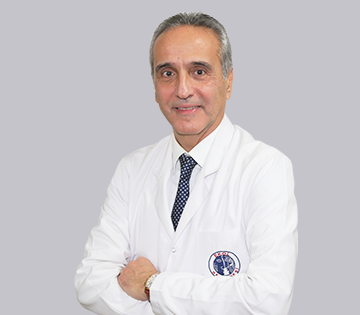 He graduated from Dokuz Eylül University, Faculty of Medicine. Between 1987 and 1991, he completed his specialization in general surgery at Buca SSK Hospital in Izmir. Between 1991 and 2016, he worked at Karşıyaka State Hospital, then until 2019 he worked as the General Surgery Specialist at Çiğli Training and Research Hospital. He is an active member of Turkish Surgical Association, Turkish Society of Colon and Rectal Surgery. He has experienced around 30,000 successful operations in the field of general surgery. Areas of interest: Laparoscopic gallbladder operations, gastrointestinal surgery, haemorrhoids and fissure surgeries, abdominal and inguinal hernia operations, breast cancer operations, thyroid cancer and goiter operations. Op. Dr. Attila El is married and has one child. He speaks fluent English.
He graduated from Dokuz Eylül University, Faculty of Medicine. Between 1987 and 1991, he completed his specialization in general surgery at Buca SSK Hospital in Izmir. Between 1991 and 2016, he worked at Karşıyaka State Hospital, then until 2019 he worked as the General Surgery Specialist at Çiğli Training and Research Hospital. He is an active member of Turkish Surgical Association, Turkish Society of Colon and Rectal Surgery. He has experienced around 30,000 successful operations in the field of general surgery. Areas of interest: Laparoscopic gallbladder operations, gastrointestinal surgery, haemorrhoids and fissure surgeries, abdominal and inguinal hernia operations, breast cancer operations, thyroid cancer and goiter operations. Op. Dr. Attila El is married and has one child. He speaks fluent English.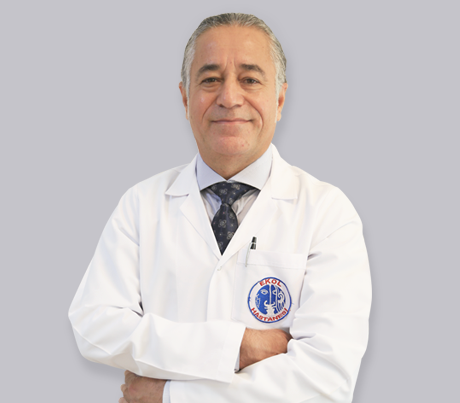 He completed his medical education at Istanbul University Cerrahpaşa Faculty of Medicine between 1986-1992. He completed his general surgery residency at İzmir Tepecik Training and Research Hospital between 1995-2000. In 2011, he received his education in the field of ERCP and Endoscopy at Afyon Kocatepe University. He worked as a specialist at Tepecik Training and Research Hospital, Karşıyaka State Hospital, Bakırçay University / Çiğli Training and Research Hospital between 2000-2021. He is a member of the Turkish Society of Surgery, Society of Endoscopic Laparoscopic Surgery, the bariatric and metabolic surgery society, and the Turkish Obesity Foundation. His special interest is Obesity Surgery.
The father of 2 children, Opr. Dr. Abdulkadir Korkmaz has a good command of English.
Areas of interest: Laparoscopic (closed) obesity (obesity) surgeries (sleeve – medicine stomach, gastric bypass) Gastric balloon application with endoscopic method in non-surgical obesity treatment Laparoscopic (closed) inguinal hernia surgeries Laparoscopic (closed) appendicitis surgeries Laparoscopic (closed) gallbladder surgeries Laparoscopic (closed) reflux - gastric hernia surgeries Goiter and Breast (breast cancer) surgeries Hemorrhoids treatment with laser Anescal surgery with laser
He completed his medical education at Istanbul University Cerrahpaşa Faculty of Medicine between 1986-1992. He completed his general surgery residency at İzmir Tepecik Training and Research Hospital between 1995-2000. In 2011, he received his education in the field of ERCP and Endoscopy at Afyon Kocatepe University. He worked as a specialist at Tepecik Training and Research Hospital, Karşıyaka State Hospital, Bakırçay University / Çiğli Training and Research Hospital between 2000-2021. He is a member of the Turkish Society of Surgery, Society of Endoscopic Laparoscopic Surgery, the bariatric and metabolic surgery society, and the Turkish Obesity Foundation. His special interest is Obesity Surgery.
The father of 2 children, Opr. Dr. Abdulkadir Korkmaz has a good command of English.
Areas of interest: Laparoscopic (closed) obesity (obesity) surgeries (sleeve – medicine stomach, gastric bypass) Gastric balloon application with endoscopic method in non-surgical obesity treatment Laparoscopic (closed) inguinal hernia surgeries Laparoscopic (closed) appendicitis surgeries Laparoscopic (closed) gallbladder surgeries Laparoscopic (closed) reflux - gastric hernia surgeries Goiter and Breast (breast cancer) surgeries Hemorrhoids treatment with laser Anescal surgery with laser He completed his medical education at Dokuz Eylul University Faculty of Medicine between 1995-2001. He completed his general surgery residency at Eskişehir Osmangazi University Faculty of Medicine between 2002-2007. He is a member of Turkish Surgery Association, Turkish Colon and Rectum Surgery Association, National Endoscopic Laparoscopic Surgery Association, Bariatric and Metabolic Surgery Association, Hepatobiliary Surgery Association and Endocrine Surgery Association. He has many national and international studies and these studies have been cited many times.
Fluent in English, Opr. Dr. Rıza Özdemir is married and has one child.
Areas of interest:
• Obesity (fatness) surgery and metabolic surgery
• Laparoscopic reflux surgery
• Laparoscopic gallbladder surgeries
• Gastric balloon application
• Stomach injection application
• Laparoscopic gastric and intestinal cancer surgeries
• Haemorrhoid surgeries
• Perianal fistula surgeries
• Laparoscopic abdominal and inguinal hernia surgeries
• Breast cancer surgeries
He completed his medical education at Dokuz Eylul University Faculty of Medicine between 1995-2001. He completed his general surgery residency at Eskişehir Osmangazi University Faculty of Medicine between 2002-2007. He is a member of Turkish Surgery Association, Turkish Colon and Rectum Surgery Association, National Endoscopic Laparoscopic Surgery Association, Bariatric and Metabolic Surgery Association, Hepatobiliary Surgery Association and Endocrine Surgery Association. He has many national and international studies and these studies have been cited many times.
Fluent in English, Opr. Dr. Rıza Özdemir is married and has one child.
Areas of interest:
• Obesity (fatness) surgery and metabolic surgery
• Laparoscopic reflux surgery
• Laparoscopic gallbladder surgeries
• Gastric balloon application
• Stomach injection application
• Laparoscopic gastric and intestinal cancer surgeries
• Haemorrhoid surgeries
• Perianal fistula surgeries
• Laparoscopic abdominal and inguinal hernia surgeries
• Breast cancer surgeries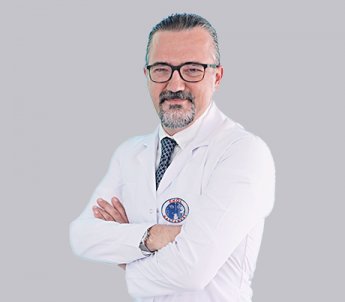 Dr. Gürsoy Pala graduated from Ege University Faculty of Medicine in 2003. In 2009, he completed his specialization in Obstetrics and Gynecology at Dokuz Eylül University Faculty of Medicine. In 2016, he obtained the title of Associate Professor in Obstetrics and Gynecology in Ankara (through an oral exam).
He has worked as the Head of the Perinatology Clinic at Tepecik Training and Research Hospital, as well as at Konak Maternity Hospital, Gülhane Military Medical Academy, and Tokat Niksar State Hospital. He is a member of the Turkish Society of Gynecology and Obstetrics, President of the Ege Perinatology Society, a board member of the Perinatology and High-Risk Pregnancy Society, and a member of the Turkish Society of Gynecology and Obstetrics Perinatology Society and Obstetric and Gynecological Ultrasonography Society.
He holds certifications in Laparoscopy, Hysteroscopy, Genital Aesthetics, and Colposcopy. He has presented oral presentations at international and national conferences and has articles published in domestic and foreign journals.
Dr. Gürsoy Pala is married and has two children. He is proficient in English.
Professional Interests: Pregnancy Monitoring High-Risk Pregnancy Management Normal and Cesarean Delivery Amniocentesis, Cordocentesis, Chorionic Villus Biopsy Intrauterine Procedures Detailed Ultrasonography Urogynecology and Pelvic Floor Surgery (Uterine, Bladder, and Vaginal Prolapse Surgeries; Urinary Incontinence Treatment and Surgeries) Gynecological Laparoscopic and Robotic Surgery (Minimally Invasive Surgeries) Genital Aesthetic Surgeries Hysteroscopic Surgeries Infertility Treatments and Insemination Colposcopy
Dr. Gürsoy Pala graduated from Ege University Faculty of Medicine in 2003. In 2009, he completed his specialization in Obstetrics and Gynecology at Dokuz Eylül University Faculty of Medicine. In 2016, he obtained the title of Associate Professor in Obstetrics and Gynecology in Ankara (through an oral exam).
He has worked as the Head of the Perinatology Clinic at Tepecik Training and Research Hospital, as well as at Konak Maternity Hospital, Gülhane Military Medical Academy, and Tokat Niksar State Hospital. He is a member of the Turkish Society of Gynecology and Obstetrics, President of the Ege Perinatology Society, a board member of the Perinatology and High-Risk Pregnancy Society, and a member of the Turkish Society of Gynecology and Obstetrics Perinatology Society and Obstetric and Gynecological Ultrasonography Society.
He holds certifications in Laparoscopy, Hysteroscopy, Genital Aesthetics, and Colposcopy. He has presented oral presentations at international and national conferences and has articles published in domestic and foreign journals.
Dr. Gürsoy Pala is married and has two children. He is proficient in English.
Professional Interests: Pregnancy Monitoring High-Risk Pregnancy Management Normal and Cesarean Delivery Amniocentesis, Cordocentesis, Chorionic Villus Biopsy Intrauterine Procedures Detailed Ultrasonography Urogynecology and Pelvic Floor Surgery (Uterine, Bladder, and Vaginal Prolapse Surgeries; Urinary Incontinence Treatment and Surgeries) Gynecological Laparoscopic and Robotic Surgery (Minimally Invasive Surgeries) Genital Aesthetic Surgeries Hysteroscopic Surgeries Infertility Treatments and Insemination Colposcopy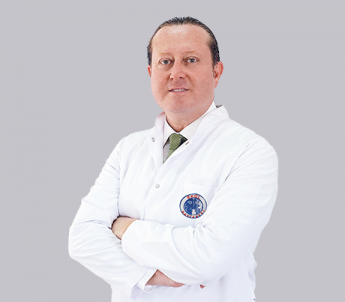 In 2001, Dr. İbrahim Egemen Ertaş graduated from Ege University Faculty of Medicine. He completed his specialization at Ankara Zekai Tahir Burak Women's Health Education and Research Hospital in 2006. In 2014, he earned the title of Associate Professor in Obstetrics and Gynecology through an oral exam in Istanbul. He has published nearly 100 scientific articles in reputable national and international journals.
Dr. İbrahim Egemen Ertaş is married and has one child. He is proficient in English.
Professional Interests: Urogynecology and Pelvic Floor Minimally Invasive Surgeries (Uterine, Bladder, and Vaginal Prolapse Surgeries; Urinary Incontinence Treatment and Surgeries) Gynecological Laparoscopic and Robotic Surgery (Minimally Invasive Surgeries) Laparoscopic Hysterectomy (Uterus Removal Surgery) Laparoscopic Ovarian Preserving Cyst Surgeries Laparoscopic Uterine Prolapse Surgeries Laparoscopic Endometriosis and Endometrioma (Chocolate Cyst) Surgeries Uterine Myomectomy Surgery Genital Aesthetic Surgeries Hysteroscopic Polyp, Curtain, and Myoma Surgeries Infertility Treatments, Insemination, and Anesthetized Uterine Imaging Colposcopy and HPV Monitoring Pregnancy Monitoring Epidural Normal and Cesarean Delivery
Memberships in Scientific Organizations: Turkish Society of Gynecology and Obstetrics Turkish Urogynecology and Pelvic Reconstructive Surgery Society Gynecological Endoscopy Society
Post-Specialization Experience: Yozgat-Çekerek State Hospital Gynecology and Obstetrics Clinic (Compulsory Service and Private Practice) Elazığ Military Hospital (National Service) and Elazığ Private Çapa Women's Obstetrics Center Kastamonu-Tosya State Hospital Women's Health and Obstetrics Clinic Ankara Gazi University Faculty of Medicine, Gynecology Clinic Charité University Hospital Berlin, Urogynecology Clinic and Pelvic Floor Surgery Center, Germany IRCAD, Laparoscopic and Robotic Surgery Training Center, Strasbourg, France Tepecik Training and Research Hospital, Women's Health and Obstetrics Clinic; Instructor (2010-2022) Ekol Healthcare Group Sada Hospital
In 2001, Dr. İbrahim Egemen Ertaş graduated from Ege University Faculty of Medicine. He completed his specialization at Ankara Zekai Tahir Burak Women's Health Education and Research Hospital in 2006. In 2014, he earned the title of Associate Professor in Obstetrics and Gynecology through an oral exam in Istanbul. He has published nearly 100 scientific articles in reputable national and international journals.
Dr. İbrahim Egemen Ertaş is married and has one child. He is proficient in English.
Professional Interests: Urogynecology and Pelvic Floor Minimally Invasive Surgeries (Uterine, Bladder, and Vaginal Prolapse Surgeries; Urinary Incontinence Treatment and Surgeries) Gynecological Laparoscopic and Robotic Surgery (Minimally Invasive Surgeries) Laparoscopic Hysterectomy (Uterus Removal Surgery) Laparoscopic Ovarian Preserving Cyst Surgeries Laparoscopic Uterine Prolapse Surgeries Laparoscopic Endometriosis and Endometrioma (Chocolate Cyst) Surgeries Uterine Myomectomy Surgery Genital Aesthetic Surgeries Hysteroscopic Polyp, Curtain, and Myoma Surgeries Infertility Treatments, Insemination, and Anesthetized Uterine Imaging Colposcopy and HPV Monitoring Pregnancy Monitoring Epidural Normal and Cesarean Delivery
Memberships in Scientific Organizations: Turkish Society of Gynecology and Obstetrics Turkish Urogynecology and Pelvic Reconstructive Surgery Society Gynecological Endoscopy Society
Post-Specialization Experience: Yozgat-Çekerek State Hospital Gynecology and Obstetrics Clinic (Compulsory Service and Private Practice) Elazığ Military Hospital (National Service) and Elazığ Private Çapa Women's Obstetrics Center Kastamonu-Tosya State Hospital Women's Health and Obstetrics Clinic Ankara Gazi University Faculty of Medicine, Gynecology Clinic Charité University Hospital Berlin, Urogynecology Clinic and Pelvic Floor Surgery Center, Germany IRCAD, Laparoscopic and Robotic Surgery Training Center, Strasbourg, France Tepecik Training and Research Hospital, Women's Health and Obstetrics Clinic; Instructor (2010-2022) Ekol Healthcare Group Sada Hospital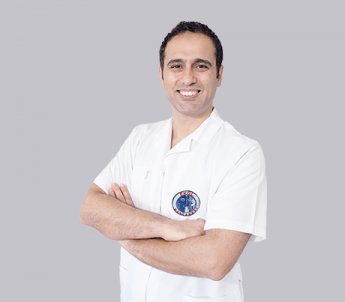 In 2009, Dr. İrfan Özer graduated from Ege University Faculty of Medicine. He completed his specialization at Zekai Tahir Burak Education and Research Hospital in 2014. He has worked at Ankara Numune Education and Research Hospital and Çiğli Regional Education and Research Hospital. He is a member of the Turkish Society of Gynecology and Obstetrics and holds certifications in Laparoscopy and Hysteroscopy. He has presented verbal presentations at international and national conferences and has articles published in domestic and foreign journals.
Dr. İrfan Özer is married and has two children. He is proficient in English.
Areas of Interest: Pregnancy Monitoring High-Risk Pregnancy Management Normal and Cesarean Delivery Urogynecology and Pelvic Floor Surgery (Uterine, Bladder, and Vaginal Prolapse Surgeries; Urinary Incontinence Treatment and Surgeries) Gynecological Laparoscopic and Robotic Surgery (Minimally Invasive Surgeries) Genital Aesthetic Surgeries Hysteroscopic Surgeries Infertility Treatments and Insemination Colposcopy
In 2009, Dr. İrfan Özer graduated from Ege University Faculty of Medicine. He completed his specialization at Zekai Tahir Burak Education and Research Hospital in 2014. He has worked at Ankara Numune Education and Research Hospital and Çiğli Regional Education and Research Hospital. He is a member of the Turkish Society of Gynecology and Obstetrics and holds certifications in Laparoscopy and Hysteroscopy. He has presented verbal presentations at international and national conferences and has articles published in domestic and foreign journals.
Dr. İrfan Özer is married and has two children. He is proficient in English.
Areas of Interest: Pregnancy Monitoring High-Risk Pregnancy Management Normal and Cesarean Delivery Urogynecology and Pelvic Floor Surgery (Uterine, Bladder, and Vaginal Prolapse Surgeries; Urinary Incontinence Treatment and Surgeries) Gynecological Laparoscopic and Robotic Surgery (Minimally Invasive Surgeries) Genital Aesthetic Surgeries Hysteroscopic Surgeries Infertility Treatments and Insemination Colposcopy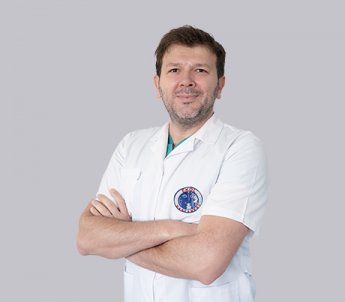 In 2010, Dr. Sadık Sözdinler graduated from Ege University Faculty of Medicine. He completed his specialization at Dokuz Eylül University Faculty of Medicine in 2017. He has worked at Van Regional Research Hospital and Muş State Hospital. He is a member of the Turkish Society of Gynecology and Obstetrics and holds certifications in Laparoscopy, Hysteroscopy, and Genital Aesthetics. He has presented verbal presentations at international and national conferences and has articles published in domestic and foreign journals.
Dr. Sadık Sözdinler is proficient in English.
Areas of Professional Interest: Pregnancy Monitoring High-Risk Pregnancy Management Normal and Cesarean Delivery Urogynecology and Pelvic Floor Surgery (Uterine, Bladder, and Vaginal Prolapse Surgeries; Urinary Incontinence Treatment and Surgeries) Gynecological Laparoscopic and Robotic Surgery (Minimally Invasive Surgeries) Genital Aesthetic Surgeries Hysteroscopic Surgeries Infertility Treatments and Insemination Colposcopy
In 2010, Dr. Sadık Sözdinler graduated from Ege University Faculty of Medicine. He completed his specialization at Dokuz Eylül University Faculty of Medicine in 2017. He has worked at Van Regional Research Hospital and Muş State Hospital. He is a member of the Turkish Society of Gynecology and Obstetrics and holds certifications in Laparoscopy, Hysteroscopy, and Genital Aesthetics. He has presented verbal presentations at international and national conferences and has articles published in domestic and foreign journals.
Dr. Sadık Sözdinler is proficient in English.
Areas of Professional Interest: Pregnancy Monitoring High-Risk Pregnancy Management Normal and Cesarean Delivery Urogynecology and Pelvic Floor Surgery (Uterine, Bladder, and Vaginal Prolapse Surgeries; Urinary Incontinence Treatment and Surgeries) Gynecological Laparoscopic and Robotic Surgery (Minimally Invasive Surgeries) Genital Aesthetic Surgeries Hysteroscopic Surgeries Infertility Treatments and Insemination Colposcopy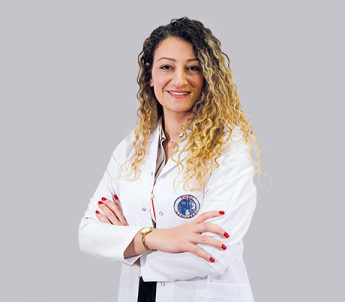 Dr. Dilay Gökdeniz graduated from Eskişehir Osmangazi Faculty of Medicine in 2010. She completed her specialization at Dokuz Eylül University Faculty of Medicine from 2011 to 2016. She has worked at Tekirdağ Çerkezköy State Hospital and Çorum Osmancık State Hospital. She is a member of the Turkish Society of Gynecology and Obstetrics, Society of Reproductive Medicine and Surgery, and Pelvic Floor and Cosmetic Gynecology Society. She has presented verbal presentations at international and national conferences and has articles published in domestic and foreign journals.
Dr. Dilay Gökdeniz is proficient in English.
Areas of Interest: Pregnancy Monitoring High-Risk Pregnancy Management Normal and Cesarean Delivery Urogynecology and Pelvic Floor Surgery (Uterine, Bladder, and Vaginal Prolapse Surgeries; Urinary Incontinence Treatment and Surgeries) Gynecological Laparoscopic and Robotic Surgery (Minimally Invasive Surgeries) Hysterectomy Surgeries Genital Aesthetic Surgeries Hysteroscopic Surgeries Infertility Treatments and Insemination Colposcopy
Dr. Dilay Gökdeniz graduated from Eskişehir Osmangazi Faculty of Medicine in 2010. She completed her specialization at Dokuz Eylül University Faculty of Medicine from 2011 to 2016. She has worked at Tekirdağ Çerkezköy State Hospital and Çorum Osmancık State Hospital. She is a member of the Turkish Society of Gynecology and Obstetrics, Society of Reproductive Medicine and Surgery, and Pelvic Floor and Cosmetic Gynecology Society. She has presented verbal presentations at international and national conferences and has articles published in domestic and foreign journals.
Dr. Dilay Gökdeniz is proficient in English.
Areas of Interest: Pregnancy Monitoring High-Risk Pregnancy Management Normal and Cesarean Delivery Urogynecology and Pelvic Floor Surgery (Uterine, Bladder, and Vaginal Prolapse Surgeries; Urinary Incontinence Treatment and Surgeries) Gynecological Laparoscopic and Robotic Surgery (Minimally Invasive Surgeries) Hysterectomy Surgeries Genital Aesthetic Surgeries Hysteroscopic Surgeries Infertility Treatments and Insemination Colposcopy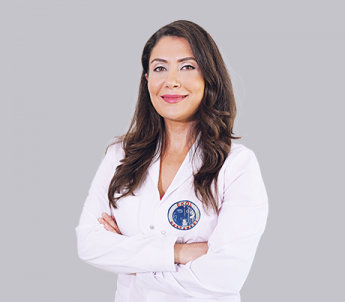 Place and Year of Birth:
Afyon - 1987
Education:
Süleyman Demirel University Faculty of Medicine (2005 - 2011)
Specialization:
Zekai Tahir Burak Education and Research Hospital (2011-2017)
Experience:
Ankara Zekai Tahir Burak Education and Research Hospital
Siirt State Hospital
Professional Interests: Pregnancy Monitoring High-Risk Pregnancy Management Normal and Cesarean Delivery Gynecological Laparoscopic Operations Genital Aesthetic Surgeries Hysteroscopic Surgeries Infertility Treatments and Insemination Colposcopy HSG (Contrast-Enhanced Uterine Imaging) Myoma, Cyst, and Uterine Operations Labioplasty (Labia Minora Aesthetics) Vaginal Tightening Surgery Urinary Incontinence Surgery G-Spot Filling (Orgasm Enhancement)
Memberships in Scientific Organizations: Turkish Society of Gynecology and Obstetrics
Courses and Certificates: Laparoscopy / Hysteroscopy Certificate Genital Aesthetic Certificate Colposcopy Course
Foreign Language: English
Place and Year of Birth:
Afyon - 1987
Education:
Süleyman Demirel University Faculty of Medicine (2005 - 2011)
Specialization:
Zekai Tahir Burak Education and Research Hospital (2011-2017)
Experience:
Ankara Zekai Tahir Burak Education and Research Hospital
Siirt State Hospital
Professional Interests: Pregnancy Monitoring High-Risk Pregnancy Management Normal and Cesarean Delivery Gynecological Laparoscopic Operations Genital Aesthetic Surgeries Hysteroscopic Surgeries Infertility Treatments and Insemination Colposcopy HSG (Contrast-Enhanced Uterine Imaging) Myoma, Cyst, and Uterine Operations Labioplasty (Labia Minora Aesthetics) Vaginal Tightening Surgery Urinary Incontinence Surgery G-Spot Filling (Orgasm Enhancement)
Memberships in Scientific Organizations: Turkish Society of Gynecology and Obstetrics
Courses and Certificates: Laparoscopy / Hysteroscopy Certificate Genital Aesthetic Certificate Colposcopy Course
Foreign Language: English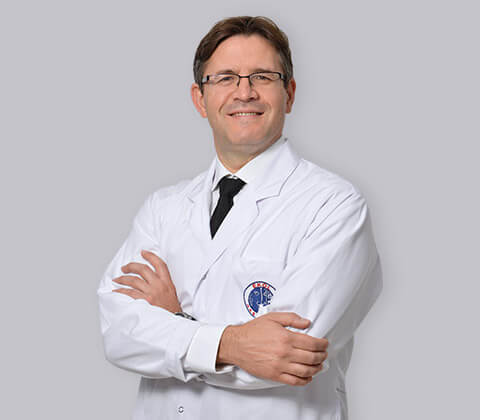 Associate Prof. Çağlar ÇALLI graduated from Izmir Atatürk High School. He is a graduate of Ege University Faculty of Medicine. He was granted Thyroid Surgery and Diseases Scholarship from the Turkish Ear Nose Throat Association in 2009. With this scholarship, he studied Head-neck tumours and thyroid surgery at Ohio State University in the USA. After being granted the Turkish Ear Nose Throat Foundation Scholarship in 2011, he studied facial plastic surgery, snoring surgery, and endoscopic sinus surgery at New York St. Lukes-Roosevelt Hospital in the USA. He became an Associate Professor in 2012. He has conducted oral presentations abroad, and published book chapters and more than 80 articles in international and national journals. Associate Professor Dr. Çağlar ÇALLI’s surgical research interests include Head-Neck tumours, Goiter and Thyroid surgery, Rhinoplasty and Endoscopic sinus surgery, ear microsurgery, and otosclerosis operations.
Associate Prof. Çağlar ÇALLI graduated from Izmir Atatürk High School. He is a graduate of Ege University Faculty of Medicine. He was granted Thyroid Surgery and Diseases Scholarship from the Turkish Ear Nose Throat Association in 2009. With this scholarship, he studied Head-neck tumours and thyroid surgery at Ohio State University in the USA. After being granted the Turkish Ear Nose Throat Foundation Scholarship in 2011, he studied facial plastic surgery, snoring surgery, and endoscopic sinus surgery at New York St. Lukes-Roosevelt Hospital in the USA. He became an Associate Professor in 2012. He has conducted oral presentations abroad, and published book chapters and more than 80 articles in international and national journals. Associate Professor Dr. Çağlar ÇALLI’s surgical research interests include Head-Neck tumours, Goiter and Thyroid surgery, Rhinoplasty and Endoscopic sinus surgery, ear microsurgery, and otosclerosis operations.